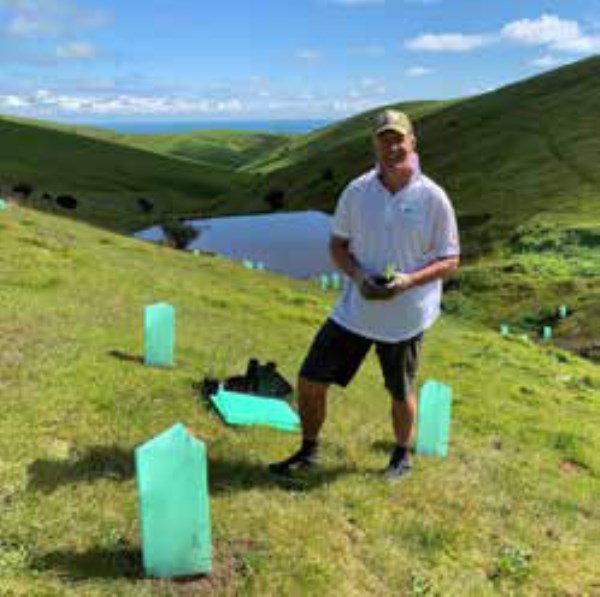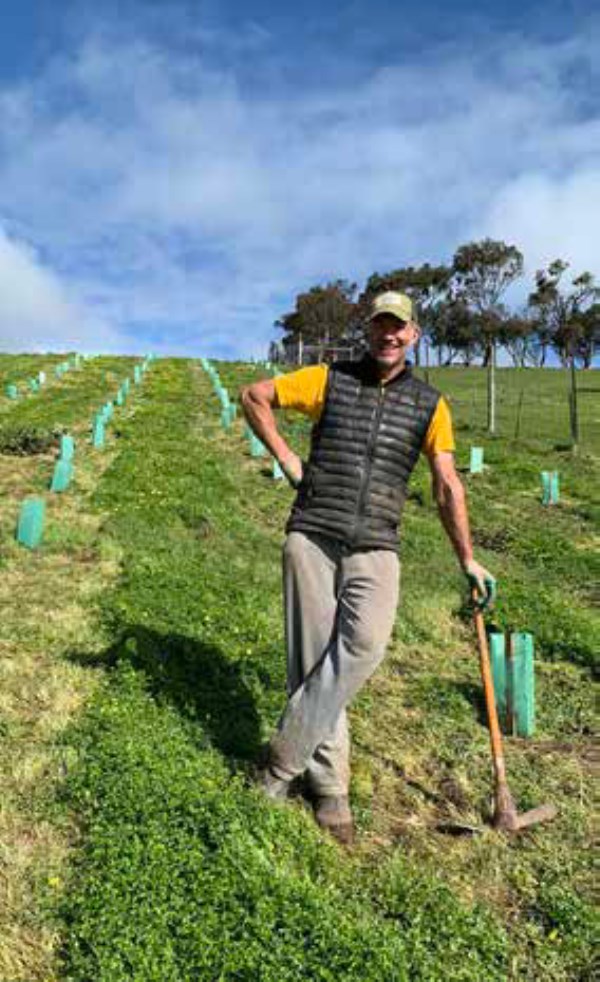The Strata Industry can do its bit to save our planet

With Australia still reeling from the disastrous bushfires, many people are feeling powerless and wondering what, if anything, they can do to combat the results of climate change.
Climate change and biodiversity loss are amongst the biggest threats facing us but some believe the task of reducing our climate risks is in the too hard basket and beyond their ability.
But we can. The strata industry, in particular, can make a valuable and impactful contribution to combatting this global problem. Buildings use 40% of the world’s energy, emit 40% of the world’s carbon emissions, and use 20% of the world’s available drinking water*.
As a significant contributor to emissions the strata industry, from owners to managers, needs to be on the front foot with sustainability programs and initiatives.
Insurers, who face serious risks from climate change especially, need to be at the forefront. As Australia’s leading strata insurance specialist CHU’s 2025 strategy includes a major sustainability plank and focusses on leading the way for change in the strata industry.

CHU is committed to being a carbon neutral business and has signed a three-year agreement with environmental scientist/ explorer Tim Jarvis’s Forktree project in combating climate change and biodiversity loss. The project involves restoring a 53ha former pastoral property on the Fleurieu Peninsula. The land currently has about 30-40 native trees on it but should have 30-40,000.
“Restoring the land will bring huge biodiversity benefits, as well as sequestering tens of thousands of tonnes of carbon,” said Tim Jarvis. “Climate change and biodiversity loss are the biggest threats facing us. The Forktree Project involves restoring and reforesting an area of degraded farmland to help combat these threats.”
Tim has congratulated CHU in embracing the project and for its environmental stand. “I encourage other parts of the insurance and strata industry to seek areas where they can help promote biodiversity and the environment.”
We are currently working with Tim to clearly articulate CHU’s environment and sustainability strategic plan to 2025. We are tackling head on how our business can lessen its impact on the planet and how to encourage strata owners, business partners and suppliers to do the same.

Property owners with environment programs in place are not only helping save our planet, but can actually realise cost savings from environmental initiatives. A way to gauge what impact their initiatives are having is through a number of government rating schemes.
One rating of particular value to the strata industry is NABERS (National Australian Built Environment Rating System), which measures a building’s energy efficiency, carbon emissions, as well as the water consumed, the waste produced and compare it to similar buildings.
NABERS says it improves buildings and workplaces because high performing buildings support more profitable and more productive businesses.
Buildings using NABERS to measure their environmental performance have reported:
• an average improvement in emissions of 11.5% 257,000 tonnes of CO2 and 1,100 megalitres of water every year
• Plus, NABERS-rated buildings have saved over $400million in energy bills since 2010 NABERS says the benefits of the ratings include:
• It helps to attract the right tenants because high performing buildings support high performing business and occupants
• Knowledge of how a building performs leads to reduced operating costs, increased market value and rental income, and reduced vacancy rates
• Optimal building operations means reduced emissions, waste to landfill and water wasted
Environmental programs can also have a positive effect on employees. 70 per cent of Australians aged 22-30 stated a strong preference or desire to work for a company that promotes environmentally sustainable practices, compared to under half (48 per cent) of Australians aged 46-53. (Study by HP Australia and Planet Ark).
Much of the push for business to move on climate change initiatives has come from investors and consumers who are now more conscious of wanting “green” products. The focus on going green also comes amid warnings from regulators, including the Australian Securities and Investment
Commission (ASIC) and the Australian Prudential Regulation Authority (APRA), about climate change and the risks to companies if they fail to undertake mitigation strategies.
The time for action by the strata industry, the insurance industry and other industries is now.
As Deloitte’s partner for energy transition and renewables, John O’Brien, told the ABC, most businesses need to start grappling with what to do about climate change, if they have not already. ”If you want to have a business that’s going to be running in 10 years, then you need to be thinking about how you’re going to plan that strategy to be in business. If you’re taking no [climate] action now, and the world is changing fast, companies that don’t change with the evolving world are effectively not going to survive.”
What are you doing to save our planet?
This article was supplied by Bobby Lehane, CEO, CHU Underwriting Agencies
Disclaimer: CHU Underwriting Agencies Pty Ltd (ABN 18 001 580 070, AFS Licence No: 243261) acts under a binding authority as agent of the insurer QBE Insurance (Australia) Limited (ABN 78 003 191 035, AFS Licence No: 239545). Any advice in this article is general advice only and has been prepared without taking into account your objectives, financial situation or needs.
View Comments
(0)